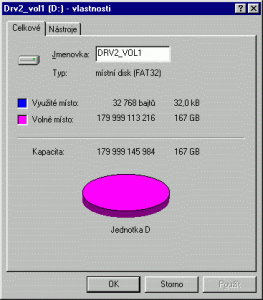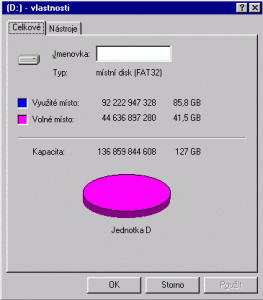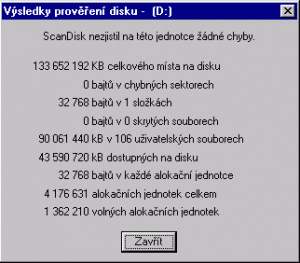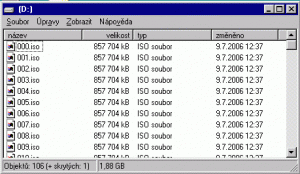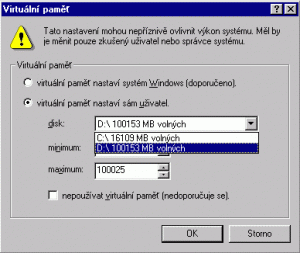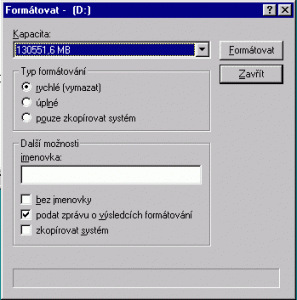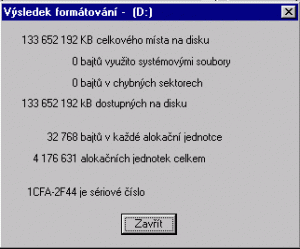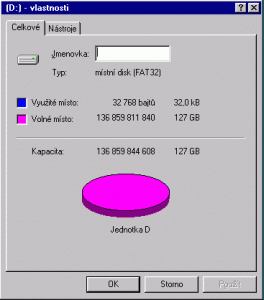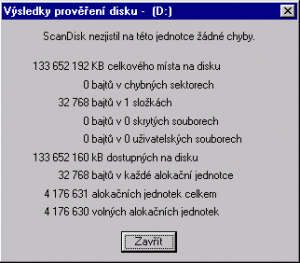
Petr
MemberContent Type
Profiles
Forums
Events
Everything posted by Petr
-
98 FE + 98 SE + ME updates + patches + (hot)fixes
Petr replied to MDGx's topic in Pinned Topics regarding 9x/ME
This is wextract from Windows Vista. If you are interested, here are iexpress/makecab/wextract/advpack from Windows Vista: http://home.tiscali.cz/~cz053010/iexpress-5384.zip There are unresolved references to kernel32.dll, functions: GetUserDefaultUILanguage GetSystemDefaultUILanguage maybe because of the Vista multilanguage concept where all language dependent resources are in separate MUI files. Petr -
98 FE + 98 SE + ME updates + patches + (hot)fixes
Petr replied to MDGx's topic in Pinned Topics regarding 9x/ME
This is Windows XP SP2 version. Petr -
Clean full Windows 98 SE install contains: ABALC.TTF ANTQUAB.TTF ANTQUABI.TTF ANTQUAI.TTF ARIAL.TTF ARIALBD.TTF ARIALBI.TTF ARIALI.TTF ARIBLK.TTF BKANT.TTF CALIST.TTF COMIC.TTF COMICBD.TTF COPRGTB.TTF COPRGTL.TTF COUR.TTF COURBD.TTF COURBI.TTF COURI.TTF GOTHIC.TTF GOTHICB.TTF GOTHICBI.TTF GOTHICI.TTF IMPACT.TTF LHANDW.TTF LSANSI.TTF LSANSUNI.TTF LUCON.TTF MATISSE_.TTF NWGTHC.TTF NWGTHCB.TTF NWGTHCI.TTF OCRAEXT.TTF SYMBOL.TTF TAHOMA.TTF TAHOMABD.TTF TEMPSITC.TTF TIMES.TTF TIMESBD.TTF TIMESBI.TTF TIMESI.TTF VERDANA.TTF VERDANAB.TTF VERDANAI.TTF VERDANAZ.TTF WEBDINGS.TTF WESTM.TTF WINGDING.TTF but not all of them are really necessary. And there should be also some .FON files that belongs to original installation. You can move other fonts to some other directory and if you will see something wrong you can copy them back selectively. Petr
-
Although it sounds confusing there was never just SP1 for IE6 alone, IE6.0SP1 is always full install and can be downloaded here: Internet Explorer 6 Service Pack 1. This is active install, if you want to download all installation files to your computer, you can use the procedure described in http://support.microsoft.com/?kbid=257249 Petr
-
And what about to put the link to that thread here? Petr
-
98 FE + 98 SE + ME updates + patches + (hot)fixes
Petr replied to MDGx's topic in Pinned Topics regarding 9x/ME
Apparently there are some candidates for use with Win9x in August MS patches http://www.microsoft.com/technet/security/...n/ms06-046.mspx Hhctrl.ocx 5.2.3790.558 14-Jul-2006 17:32 519,168 Windows2000 SP4 Hhctrl.ocx 5.2.3790.558 14-Jul-2006 15:35 519,168 Windows XP SP1QFE Hhctrl.ocx 5.2.3790.2744 14-Jul-2006 15:25 546,304 Windows XP SP2GDR Hhctrl.ocx 5.2.3790.2744 14-Jul-2006 15:37 546,304 Windows XP SP2QFE Hhctrl.ocx 5.2.3790.558 11-Jul-2006 13:14 519,168 Windows Server 2003 RTMGDR Hhctrl.ocx 5.2.3790.558 11-Jul-2006 13:02 519,168 Windows Server 2003 RTMQFE Hhctrl.ocx 5.2.3790.2744 11-Jul-2006 13:16 546,304 Windows Server 2003 SP1GDR Hhctrl.ocx 5.2.3790.2744 11-Jul-2006 13:27 546,304 Windows Server 2003 SP1QFE I'd vote for the Windows 2000 version, does anybody know how to test the functionality? Hlink.dll 5.2.3790.2748 22-Jul-2006 03:38 72,704 Windows2000 SP4 Will this work in Windows 9x environment? Is anything from new Internet Explorer and Outlook Express updates usable in Windows 9x? Petr -
AFAIK just OEM versions were bootable, FPP and upgrade versions not. Petr
-
Cabinet Software Development Kit contains detail Microsoft MakeCAB User’s Guide and other documentation, it is a bit old but I think there were not many changes. I have used it to re-package Internet Explorer IE_S1.CAB to IE_S6.CAB. Not related to this topic - you can update and add files to the IExpress package with the UPDFILE tool without having to rebuild the package. I was able to locate UPDFILE utility here: http://download.microsoft.com/download/net...en-us/nm3rk.exe Petr
-
I found out that Microsoft had a hotfix for this, but unfortunately I missed out by about 30 days since support for ME expired on 11 July. Do I have any easy options? Upgrading to a new system seems hardly worth it for this old machine. What hotfix do you mean? The Unofficial Service Pack for Windows ME contains all of them, and also MDGx has all of them on his website. The USB driver is ported driver from Windows Me to Windows 98 SE, but PaleoTechie uses Windows Me! Microsoft Windows Update still works (even for Windows 95 and Windows NT 4.0) but it does not contain hotfixes. You have to ask MS support for them. They are still avaiable but maybe not for everybody. Petr
-
So what are limits? 34Gb? Or the 64 or the 137Gb ? Want to fill a W98SE 933MHz PIII with 2x2.5"USB 30Gb and 40Gb (PC=USB1.1) and add ATA-133 card for another (total) of 0.5 to 1Tb, so try to find beforehand what problems I will run into. I've read the 137Gb limit stuff and think I'm out of the woods (correct Intel chipset for the IAA driver on the mainboard and 48bit support on my ATA-133 card). So my question: what problems CAN I run into with external 2.5" drives? Due to W98 and/or limits in the 2.5" housing itself? (read somewhere they sometimes can only handle 30Gb, which means I cannot swap the 30Gb for a 100Gb and use the 30Gb in my W98 4Gb laptop... The 30Gb housing is cheap, but a new 2.5" housing which has no such issues might be cheaper in the long run). I think the biggest problem with USB will be very slow speed. I recommend to buy add-on USB 2.0 card, it is below $10 and can provide you with 20x to 30x (tested) higher speed then USB 1.1. I have the best experience with USB2 cards with VT6212 chip, uPD720101 is not bad too. I use WD Passport Portable 120 GB USB 2.0 Hard Drive with Windows 98 SE and no problem yet. Regarding the size, it seems that the biggest media in Windows 9x could be 2048 GiB (32-bit sector addressing), scandskw and defrag have problems with partitions bigger than 137 GB (128 GiB) but Windows Me versions works well.
-
The modified INF files for i945P/955X+ICH7 are here: ich7.zip My experience shows that some 6600 work, some not, it has to be tested in each case, there is no general rule. Petr
-
I seems that all of KB832584, KB888617, KB899282 fixes are no longer available. Petr
-
I never used any screensaver so I can't say. Petr
-
You are right, I have checked this now, strange thing, I was sure that Windows 98 SE has 4 digit year in short format already and that was why I suggested to Gape to remove 2_4DATE.EXE before 2.0, more than one year ago... Petr
-
AFAIK this is necessary in Windows 95 and Windows 98 Standard Edition only, the default short date format in Windows 98 Second Edition should be M/D/YYYY. Petr
-
Enable48BitLBA | Break the 137Gb barrier!
Petr replied to LLXX's topic in Windows 9x Member Projects
ESDI_506.PDR driver has nothing to do with partitions and their sizes, this driver does low level access to the IDE/ATA disks. It receives sector number and required command (read/write/verify) and executes it. The sector number in Windows 9x is 32-bit number, one sector has 512 bytes and therefore the maximum addressable disk size is 2048 GiB = 2 TiB.I don't know what is the real maximum partition size in Windows 9x, I have successfuly tried 200 GB. Just Windows scandisk and defrag tools has to be used from Windows Me for partition sizes above 128 GiB. Yes. Petr -
Does anybody know any either DOS or Win tool that wold be able 1. to set the chipset registers for the desired transfer speed 2. to set the hdd itself for the right transfer speed ? This task is usually done by BIOS, but if the disk is too large and BIOS will freeze without setting the disk to NONE, then the disk speed is set to the lowest possible. I had the same problem long time ago on my Linux server - but there aresimple tools that can do these tasks: 1. setpci for setting the chipset registers 2. hdparm for setting the hdd But what to use with Windows 9x? Now we have ESDI_506.PDR driver that supports >137GB disks, if BIOS supports them too, then everything is OK. But on older boxes, it is necessary to set the disk to NONE in BIOS, Windows 9x still finds the disk if it is partitioned correctly, even without DDO, but the speed is very low. I think there may be many people that would appreciate big second disk on their old systems. I can test this on my PC with GA-586HX motherboard and maybe also with GA-686BX motherboard with PIIX3 and PIIX4 IDE controllers. Other possibility is to modify BIOS to support at least detection of the >137GB hard disks, it should be not so big problem, but the solution would be specific for every motherboard. Petr
-
Enable48BitLBA | Break the 137Gb barrier!
Petr replied to LLXX's topic in Windows 9x Member Projects
Just for reference - 180GB disk in rather old PC with GA-586HX motherboard with AMD K6-2/400 and Windows 95 OSR2.1, DDO installed but the disk is controlled by ESDI_506.PDR: Of course, after 128GiB/137GB data corruption would occur but it is just because the ESDI_506.PDR does not support 48-bit LBA yet. But the systems seem to have no problem with this size. We will see when LLXX release the patched 4.00.1119 driver. Petr EDIT: Even without DDO and BIOS set to NONE it works the same way. Just the correct timing of the PIIX3 controller should be checked, I suppose it is set to the slowest one because the transfer speed is approx 1800 kbytes/s only. The other slower disk shows about 8000 kbytes/s. But this is problem of any OS that does not set timing registry of the disk controller - 95/98/Me. Petr -
Enable48BitLBA | Break the 137Gb barrier!
Petr replied to LLXX's topic in Windows 9x Member Projects
I have created 137 GB disk as disk D, then filled it (Win95 OSR2.1 ESDI_506.PDR 4.00.1111) to 100 GB by some files with known MD5 sum, and then calculated the MD5 sums in Windows 95 environment - and everything was good. It would be very good to know any examples of problems above 32 GiB barrier, I still believe that Mictosoft had some reason to write that KB article. Petr -
The general rule is that using English files on any "US" Windows 98/Me version cannot cause any other problem than displaying messages in different languages. As it is stated in Windows 98 Resource Kit Appendix A - International Windows 98, the United States release version is available in English, German, Italian, Norwegian, Swedish, Dutch, French, Spanish, Portuguese, Danish, Finnish, Russian, Polish, Hungarian, Greek, Turkish, Czech, Slovak and Slovenian languages. The code portion of all executables is exactly the same, just the resources (text strings, menus and dialogues) are translated. So installing of English SP on Italian Windows should be harmless - if you don't mind the English dialogues. Petr
-
And what about: KB888617 6.0.97.86 KB899282 6.0.97.89 ? Petr
-
Enable48BitLBA | Break the 137Gb barrier!
Petr replied to LLXX's topic in Windows 9x Member Projects
A few Windows 95 screenshots: Disk filled by 86 GiB files: It can be seen that the pie diagram does not show the used space. The same result with 16 GB disk. Not tested what is the size limit for correct behavior. And here is virtual memory setting - the bug (negative free space) described in KB272620 can be corrected by simple resource editing - by replacing %d by %lu and everything looks well now: Here I have found one bug: The total space occupied by all files (or by selected files) wraps around 4 GB. (corrected in Windows 98) So far no problem. Mr. Loew's diskdvr tool shows that ESDI_506.PDR is really used: X:\DATA\137G>diskdvr ID PORT DRIVER .INF FILE DESCRIPTION 07: ESDI_506.pdr MSHDC.INF sekundární řadič IDE (dvojitß FIFO) 06: ESDI_506.pdr MSHDC.INF primární řadič IDE (dvojitß FIFO) Petr -
Enable48BitLBA | Break the 137Gb barrier!
Petr replied to LLXX's topic in Windows 9x Member Projects
Windows 95 or 98 or Me or XP has the only one interface that take care about 28-bit or 48-bit LBA - and it is ESDI_506.PDR or other 3rd party ATA driver. Windows, at least 98 and Me, uses 32-bit "LBA" internally the same way for ATA or SCSI devices. Therefore it make sense to me that in KB246818 are mentioned "Hard disks and other media that are larger than 32 gigabytes (GB) in size". 32 GiB = 67108864 (64 M) sectors, i.e. the maximum length of the sector number is 26 bits. It is very hard to gues why just 26-bit "LBA" should be the barrier. Sure, there must be some reason why Microsoft wrote this article - but what? I just added 130 GB disk to my Virtual PC 2004 Windows 95 OSR2.1 and everything seems to be OK so far. Virtual PC emulates i440BX chipset with PIIX4 ATA controller and Windows 95 uses the original 4.00.1111 so far, in case of any problem I will replace it by 4.00.1119 version and repeat. Now I'm filling this disk with data, it requires some time. Here are some screenshots - sorry, they are in Czech language, I forgot to obtain the English version from MSDN at the right time. The disk was partitioned using Windows Me and formatted in Windows 95. Petr -
Yes, it is. Petr
-
Enable48BitLBA | Break the 137Gb barrier!
Petr replied to LLXX's topic in Windows 9x Member Projects
Two points: 1. KB246818 states: In that case even the drivers for the ATA adapter could not help. But if the problem is really in ESDI_506.PDR only, it would be possible to use it. 2. CPU speed. AMD patch is available for OSR2 only, but I was able to patch ESDI_506.PDR and SCSIPORT.PDR from Windows 95 retail version and everything worked fine. In fact it was very stupid mistake of MS programmers, they just multiplied and divided three constants and on some CPUs it caused divide overflow. But if you have multiplied and divided these three numbers manually and put just the result to these drivers, everything was fine and there was absolutely no change in the functionality. I wrote this to Microsoft in February 2000 and asked them to publish the fix. Their answer was that they replaced all Windows 95 in our company by Windows 98 SE free of charge - that's the reason why I don't work with Windows 95 for more than 6 years. I suppose that the problem in NDIS.VXD will have the same nature and could be easily corrected - if anybody cares about it. Do you have any idea - it this problem for all 2.2GHz+ processor or just for specific ones? I have installed Windows 95 FPP on Virtual PC 2004 and found no problem - although the CPU is Pentium D 2.8 GHz. BTW, there is also problem with AMD K6-2 500 MHz processors on Windows Me: http://support.microsoft.com/kb/261641 Petr

